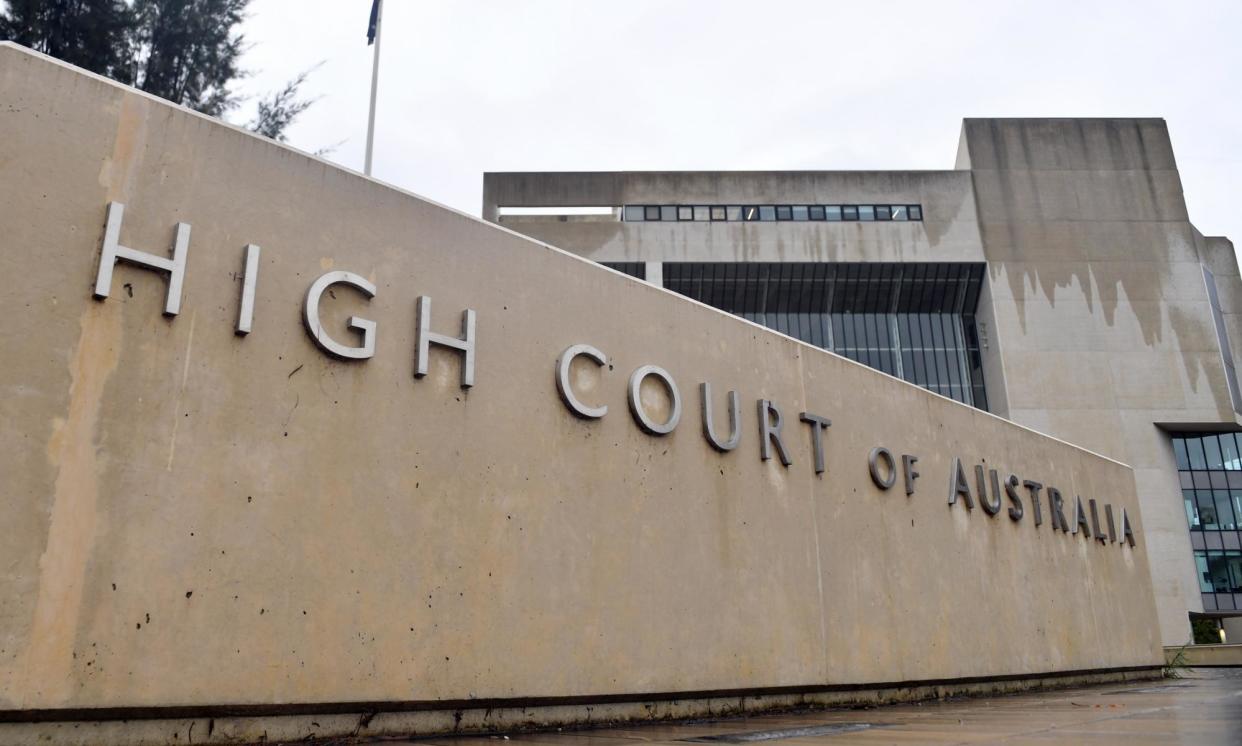More than 170 immigration detainees could be freed if Australian government loses high court challenge

More than 170 people in immigration detention could be released if the government loses the next high court challenge on the legality of the program, according to a leaked internal estimate.
Guardian Australia can reveal that the affected cohort who refuse to cooperate with deportation is larger than earlier estimates produced by media outlets and that the government has identified more than 40 people who are yet to lodge claims for protection visas who could be freed by the decision.
The number of people potentially affected by the ASF17 high court case, to be heard on 17 April, has been a closely guarded secret, with the immigration minister, Andrew Giles, refusing to disclose estimates in question time on Monday.
Related: Hundreds more immigration detainees could be released in sequel to NZYQ high court ruling
In November, the high court ruled that immigration detention is unlawful where it is impossible to deport the non-citizen, a decision which has triggered 151 releases so far, igniting a political firestorm about the government’s management of the decision.
Guardian Australia revealed in February that the attorney general, Mark Dreyfus, had applied to send a new case to the high court to clarify if the government must release people from immigration detention if their refusal to cooperate with authorities has prevented them being deported.
According to leaked Australian government estimates, more than 170 people could be affected including:
More than 110 “involuntary individuals”, whose home countries will not issue a travel document or facilitate removal.
More than 40 who could fall into scope who have not yet lodged protection visa applications.
More than 20 who have asked to be deported – which enlivens a statutory obligation for them to be removed – but their cases have not been referred to the Australian Border Force.
Earlier estimates published by the media were based on December detention statistics, which noted there were 69 people from Iran in detention, 34 from Sudan and 24 from Iraq who were likely affected because their governments would not accept involuntary removals.
Asked how many could be affected by the case, Giles told parliament on Monday he “can’t get into the details of cases that are before the high court”.
“The government believes that these individuals – those who are not cooperating with their removal – should be removed from Australia as a priority.
“While they are not, they should remain in immigration detention.”
The federal court has issued contradictory judgments on the issue of non-cooperative detainees, ordering the release of Ned Kelly Emeralds on 30 November but refusing release in the case of an Iranian man known by the pseudonym ASF17.
ASF17, who has been detained for more than a decade, refuses to meet Iranian authorities because he fears for his life if he is removed to Iran because he is bisexual.
According to ASF17’s submissions in the case, the commonwealth has accepted that sexual intercourse between males is illegal in Iran and can attract the death penalty.
In the submission ASF17’s lawyers warned that holding non-cooperative detainees responsible for the inability to deport them “is wrong”.
This would require courts “make plainly political value judgments in individual cases”, they warned.
Guardian Australia understands the government believes there is a good chance it will win the case, but is preparing detailed release plans in advance of the April hearing.
These include draft minutes to grant visas to those affected, and protocols for how many are released at a time, to ensure police are on hand to apply electronic monitoring ankle bracelets.
Giles told Guardian Australia: “The government does not comment on court cases because we will not do anything to jeopardise our chances of being successful.”
Earlier, Giles said “we successfully defended this in the federal court and will continue to argue this forcefully in the high court”.
“The high court will make its decisions independent of government,” he said in a statement. “No government, no parliament, no minister is above the law.
“Community safety is the first and foremost responsibility of government. We have not sat idly by as the former government did.
“We engaged legal and security experts through the community protection board. We are getting the best advice so we are ready to respond.”


